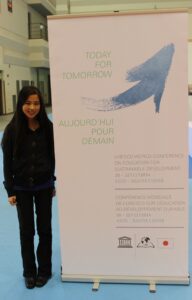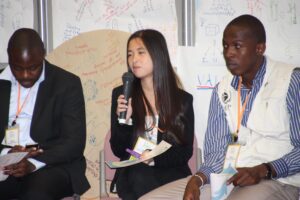 Although we promote appreciation for nature (hiking, skiing, boating) through outdoor recreation and tourism, most of those activities are aimed at using nature, rather than protecting it for its inherent value. I am not aware of many policies enacted around climate action and usually most policies seem to trickle down from the federal or provincial level. Although there were efforts to create a youth council, in general youth have not assumed a prominent place in decision-making, despite it being a university town with a large population of students. In general, I attribute this to lack of awareness, rather than ignorance or ill will.
Although we promote appreciation for nature (hiking, skiing, boating) through outdoor recreation and tourism, most of those activities are aimed at using nature, rather than protecting it for its inherent value. I am not aware of many policies enacted around climate action and usually most policies seem to trickle down from the federal or provincial level. Although there were efforts to create a youth council, in general youth have not assumed a prominent place in decision-making, despite it being a university town with a large population of students. In general, I attribute this to lack of awareness, rather than ignorance or ill will.
While in university at an Ivy League institution in the US, I had the privilege to participate in many youth initiatives that involved public consultations, research, engagement with leadership, negotiations, and policy writing with the Y20 (a stakeholder group of the G20) and UNESCO (where we wrote a youth statement on Education for Sustainable Development (ESD) distributed to UNESCO Commissions worldwide). I then lived in metropolitan, multicultural cities that were much more diverse – racially, politically, culturally, and in terms of social and environmental views.
 Different problems require different solutions. Some benefit from government and policy intervention, which change the way systems work and oblige people to behave in certain ways through legislation. Other issues are better addressed through education, social entrepreneurship, volunteering and direct service, philanthropy and financial sponsorship, corporate involvement, and even art or creative media.
Different problems require different solutions. Some benefit from government and policy intervention, which change the way systems work and oblige people to behave in certain ways through legislation. Other issues are better addressed through education, social entrepreneurship, volunteering and direct service, philanthropy and financial sponsorship, corporate involvement, and even art or creative media.
As I progress in my understanding of the purpose and limitations of policy action, I want to make sure that I stay connected to the different communities that I have been a part of. So much of policy is not only influencing people to change, but also cultivating an attitude of understanding of their concerns and motivators.





